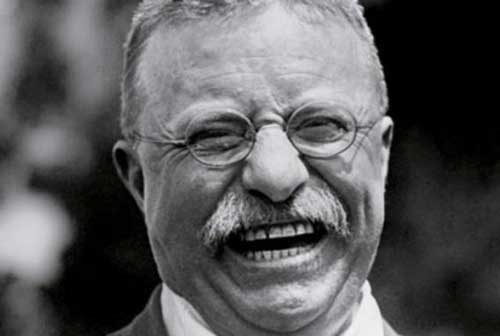
At hinge points in a leader’s journey, there is often a recurring question: Will one serve as a prophet…or a politician?
This is manifestly evident in some situations. For example, Theodore Roosevelt, master politician, opted to place his electoral prospects to the side in 1912. He emerged as a prophet. Running as a third-party candidate, with no campaign or party infrastructure other than that he cobbled together on the fly, TR finished second in the presidential election.
With the passage of time, many have concluded that Roosevelt’s historical influence was enhanced by his role as a prophet in 1912. Had he trimmed his sails further, stayed within the hedges of the conventional politics of the moment, he might not have spoken to the future in the unique way he continues to do, more than a century later.
Prophets and Politicians in Business
The dance between prophet and politician is seen in leaders’ journeys. It goes far beyond actual politics.
It plays out, for example, in the business world. The most effective entrepreneurs serve variously as prophets—visionaries—and politicians—doers.
Steve Jobs famously envisioned products that encompassed stretch goals to produce. He took the perspective of the customer so faithfully that he repeatedly foresaw their evolving needs and desires long before they did. For example, Jobs as prophet could see the potential for an iPhone that would become a centerpiece of our lives and work, connecting individuals and groups in new ways.
Jobs was also the master politician, the relentless doer who could inspire and cajole and menace and threaten as required to elicit extraordinary performance from his teams and organizations.
Real Artists Ship
Jobs’s capacity to combine the roles of prophet and politician is captured in his memorable catchphrase: Real artists ship.
The artist without inspiration, who has not found her own voice, is not a creator. At best, she can be an interpreter of the work of others.
The artist who cannot bring his vision to fruition is a mere dreamer, serving himself.
Breakthroughs are achieved by those who can achieve breakthroughs in pursuit of great visions, implemented by the quotidian renderings of shipping dates and accounting ledgers.
This is as true of Steve Jobs as it is of Elon Musk and Theodore Roosevelt and Frank Lloyd Wright and Zaha Hadid.
Prophet or Politician
What about you?
Are you more inclined to serve as a prophet or a politician?
Is your choice based on your own temperament? Is it based on your self-interest?
Or is your choice based upon your evaluation of how best to serve others in your current circumstances?
Do you reevaluate your role regularly?
If you have become a politician, in your context, are you running the risk of playing it safe? Are you on defense… or on offense? Are you protecting your incumbency, or that of your enterprise?
If you’ve become a prophet, are you having an effect? Or are you falling into self-serving habits—such as self-righteousness or isolation–reducing your added value?
Are you able to serve as both a prophet and a politician? How do you know? How do you ascertain your value? How is your answer different from one year ago? Five years ago?
Conjuring up your viewpoint from next year, are you serving primarily as a prophet or politician now?
Who are you serving?
Prophet or Politician
